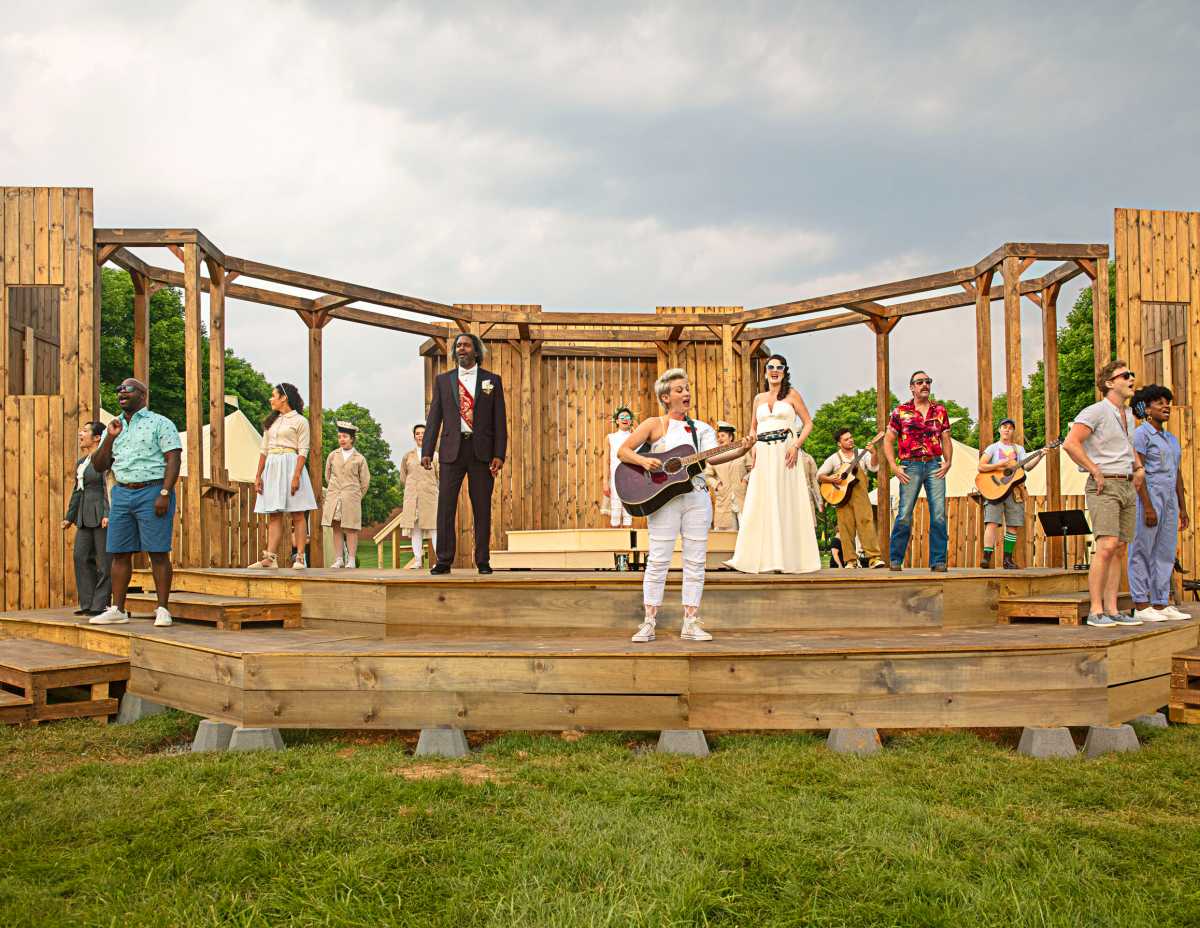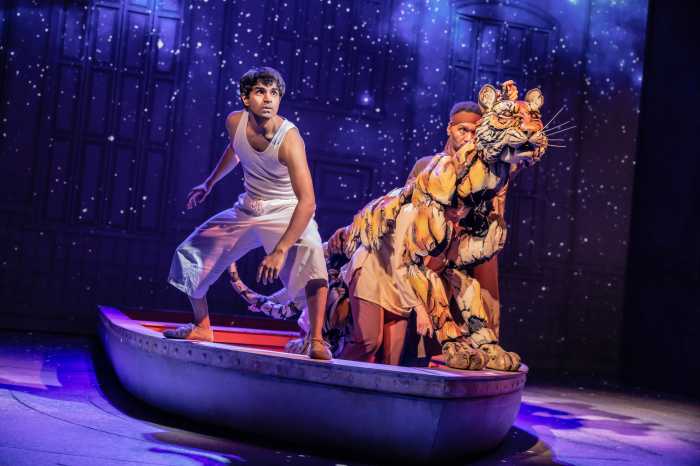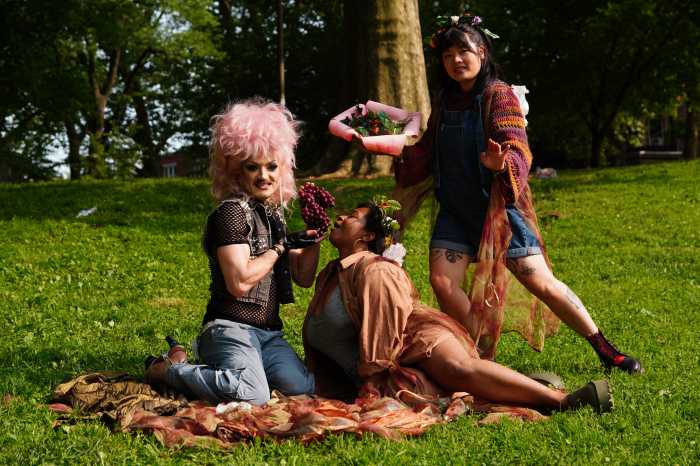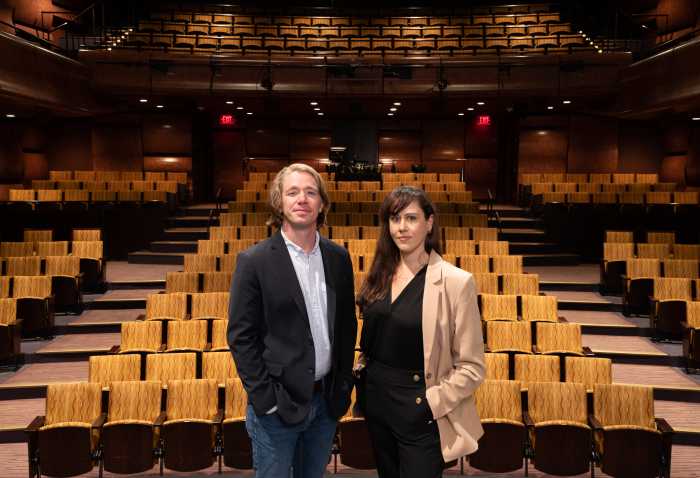When William Shakespeare wrote “Full many a glorious morning have I seen, flatter the mountain-tops with sovereign eye, kissing with golden face the meadows green, gilding pale streams with heavenly alchemy; Anon permit the basest clouds to ride” in ‘Sonnet 33‘, he could have been talking about the Pennsylvania Shakespeare Festival’s new outdoor stage.
Led by favored Philadelphia director Matt Pfeiffer with local actors Sean Close, Eli Lynn, and Sabrina Lynne Sawyer, the three-person comedy premieres this week with an updated revival of ‘The Complete Works of William Shakespeare (abridged) [revised] [again]’, and will run from June 28 through July 16 in front of the Trexler Library at DeSales University.
Pfeiffer has directed and acted in his share of Shakespeare. He tested the Pennsylvania Shakespeare Fest (PSF) waters with its one-time stab at outdoor weather Bard-work with ‘A Midsummer Night’s Dream’ in 2021.
“There’s this weird thing about getting to do these plays that been performed for 400 years,” said Pfeiffer. “The spiritual DNA of what actors faced in Elizabethan England is not so different than what we face today. With that, Shakespeare offers you these tremendous dares – the language and the circumstances are epic and complex.”
Coming up in Philly as an interpretative artist rather than a devising one (“like Pig Iron and New Paradise Labs with whom I came up”), Pfeiffer had to find his own groove as a creative. Shakespeare, with his poetical lingo and circumstances, made it so the canvas of interpretation opened up creatively.
“The musicality of Shakespeare prepares you for playwrights such as Tracey Letts and David Mamet whose plays I’ve directed. But directing Shakespeare freed me up creatively… freed me up to go into a rehearsal room with fewer answers and more questions.”
Real freedom, however, comes with performing outdoors. After battling the elements of the pandemic for 2+ years, the happily ”chaotic” ‘Midsummer Night’s Dream’ of 2021 set the stage, literally, for an outdoor venue and the comedy of Complete Works.
“Shakespeare talked about the “overhanging firmament of the earth” in Hamlet because he and his actors were looking up at the actual sky,” laughed Pfeiffer. “We’re unplugged in a very visceral way. And Complete Works is almost a street-performance show as it originated at the Edinburgh Fringe. The irreverence is baked-in whenever you do guerilla-style, street performance.”
As for what type of performer is needed for what Pfeiffer notes is ‘The Complete Works’ “Saturday Night Live-level” vibrance comes down to the tenacity and talents of Philly comic actors Sean Close, Eli Lynn and Sabrina Lynne Sawyer.
You have to be willing, in Pfeiffer’s estimate, to throw up on audience members and wear awful wigs when it comes to ‘The Complete Works’. Pfeiffer’s use of non-binary, female and BiPoc actors is not meant to be “a statement on my part. We’re freed up from the standard rules, and doing Shakespeare in the 21st Century… it is incumbent on you to think in that regard. To think in non-binary terms.”
As a director, Pfeiffer must work in non-binary terms so to create great satire from Shakespeare. And each actor also must have the skill and the savvy to play to Shakespeare’s greatness, then lampoon it.
“Each of these actors CAN play Juliet and Macbeth – you have to be able to do a thing well to satirize it,” said the director. “The history of ‘Complete Works’ complimentary pieces is that it was once owned by “three dumb white guys.” But every Shakespeare play that I have ever directed must come from a diversity of perspectives and performance style – and that runs the gamut from gender and race to age and experience. That’s critical for me. I wanted it to be a 21st century examination of diverse perspectives – who gets to tell, and must tell these Shakespeare stories.”

































